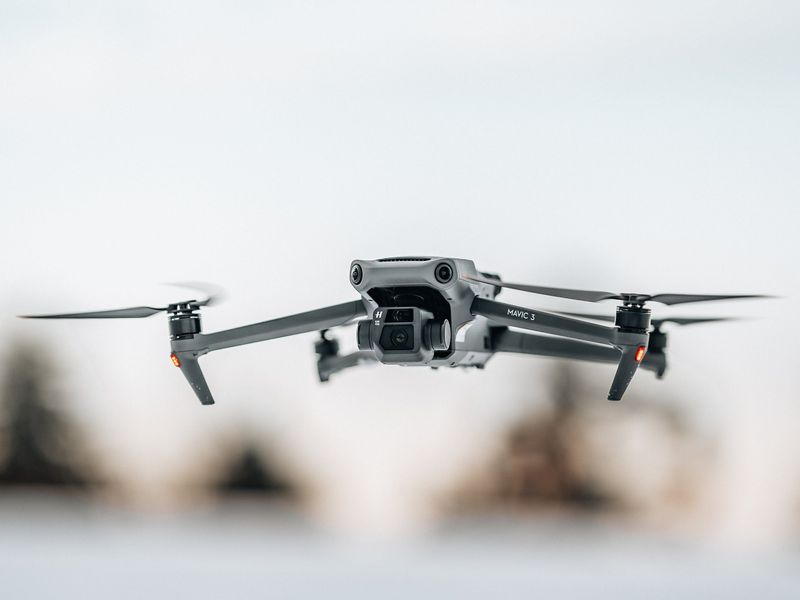Mobile & Wireless Predator Spyware Delivered to iOS, Android Devices via Zero-Days, MitM Attacks
Introduction
In a recent report by Google’s Threat Analysis Group, it has been revealed that iPhones and Android devices have been targeted by a spyware called Predator. The spyware was delivered through the exploitation of zero-day vulnerabilities in iOS and Chrome as well as through man-in-the-middle (MitM) attacks. These attacks were aimed at Ahmed Altantawy, a prominent opposition politician in Egypt. The attack is believed to be sponsored by the Egyptian government, highlighting the extent of state-sponsored surveillance and cyber-espionage activities. This incident raises important concerns about internet security, privacy, and the need for better protection of mobile devices.
Zero-Day Vulnerabilities and MitM Attacks
Zero-day vulnerabilities are software vulnerabilities that are unknown to the software vendor and have not yet been patched. In this case, Apple released patches for three zero-day vulnerabilities in iOS, but these fixes only addressed devices running iOS versions before 16.7. The Predator spyware targeted older versions of iOS, taking advantage of these unpatched vulnerabilities to gain unauthorized access to the targeted devices.
The attack also utilized MitM attacks, which involve intercepting the communication between the victim’s device and the intended recipient. In this case, the attacker redirected Altantawy to a malicious website when he visited certain HTTP websites through his Vodafone Egypt mobile data connection. This redirection allowed the attacker to deliver the Predator spyware to his device and gain control over it. This type of attack requires significant resources and expertise, typically associated with state-sponsored groups or well-funded threat actors.
The Role of Traffic Manipulation and ISP Level Surveillance
One concerning aspect of this attack is the use of traffic manipulation at the ISP level. It is not uncommon for totalitarian and authoritarian regimes to conduct surveillance and traffic manipulation in order to control and monitor their citizens’ online activities. In this case, the attacker used an injection middlebox to redirect Altantawy’s traffic to the malicious website. While it is unclear whether the middlebox was located on Telecom Egypt or Vodafone Egypt’s network, it is suspected that it was within Vodafone Egypt’s network as precise targeting of an individual subscriber would require integration with Vodafone’s subscriber database.
This incident highlights the need for better security measures at the ISP level to protect against traffic manipulation and ensure the privacy and security of users’ online activities. Governments and regulators should work together to establish regulations and standards that protect users’ privacy and prevent unauthorized access to their data.
Implications for Privacy and Cybersecurity
This attack raises significant concerns about privacy and cybersecurity, especially for mobile device users. The ability to exploit zero-day vulnerabilities and conduct MitM attacks demonstrates the level of sophistication and resources available to threat actors. It also underscores the importance of staying vigilant and keeping devices updated with the latest security patches.
Mobile devices have become an integral part of our lives, storing a vast amount of personal and sensitive information. As these devices become increasingly targeted by cybercriminals and state-sponsored groups, it is crucial for users to take proactive steps to protect their privacy and ensure the security of their devices.
Protecting Mobile Devices from Exploits
1. Keep software up to date: Regularly update your mobile device operating system and applications to ensure that you have the latest security patches. This helps protect against known vulnerabilities and reduces the risk of exploitation.
2. Use secure connections: Whenever possible, use secure connections such as HTTPS instead of HTTP to ensure encrypted communication between your device and the websites you visit. This prevents the interception of your traffic and reduces the risk of MitM attacks.
3. Be cautious of suspicious links and messages: Avoid clicking on suspicious links or opening messages from unknown senders, especially if they contain attachments. This helps prevent the installation of malicious software or unintentional exploitation of vulnerabilities.
4. Install reputable security software: Use trusted mobile security software that offers features such as malware detection and privacy protection. This can help detect and remove malicious software from your device and provide an extra layer of protection against potential threats.
5. Regularly review app permissions: Check the permissions requested by apps installed on your device and only grant the necessary permissions. Be cautious of apps that request excessive permissions, as they may have malicious intentions.
6. Enable two-factor authentication (2FA): Enable 2FA for your accounts whenever possible to add an extra layer of security. This helps prevent unauthorized access to your accounts even if your device is compromised.
7. Use strong, unique passwords: Create strong, unique passwords for your accounts and consider using a password manager to securely store and manage your passwords. This reduces the risk of unauthorized access to your accounts.
Conclusion
The delivery of the Predator spyware to iOS and Android devices using zero-day vulnerabilities and MitM attacks is a significant incident that highlights the need for improved internet security measures. The attack targeted a prominent opposition politician in Egypt and is believed to be state-sponsored, underscoring the extent of surveillance and cyber-espionage activities conducted by authoritarian regimes.
To protect against such attacks, individuals should prioritize internet security best practices, such as keeping software up to date, using secure connections, being cautious of suspicious links and messages, and installing reputable security software. It is also crucial for governments and regulatory bodies to establish regulations and standards that protect users’ privacy and prevent unauthorized access to their data. Only through collective efforts can we create a safer and more secure internet for all users.

<< photo by Mati Mango >>
The image is for illustrative purposes only and does not depict the actual situation.




